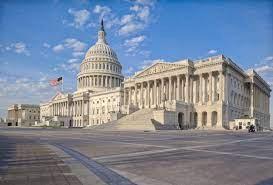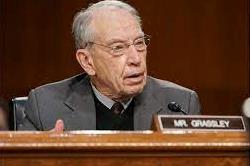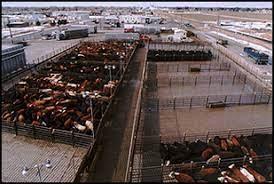 Senators Chuck Grassley (R-IA), John Tester (D-MT) and Mike Rounds (R-SD) announced legislation to address alleged anticompetitive practices in the meat and poultry industries. The Senators are concerned over consolidation especially in the red meat industry leading to potential pressure on producers and vulnerability to disruption in the production chain. These include events such as the fire at the Tyson Foods. Holcomb, KS. plant or cyber attacks that impacted JBS USA. The Senators are also concerned that anticompetitive behavior possible through consolidation could function to the disadvantage of farmers, despite protection offered by the Packers and Stockyards Act.
Senators Chuck Grassley (R-IA), John Tester (D-MT) and Mike Rounds (R-SD) announced legislation to address alleged anticompetitive practices in the meat and poultry industries. The Senators are concerned over consolidation especially in the red meat industry leading to potential pressure on producers and vulnerability to disruption in the production chain. These include events such as the fire at the Tyson Foods. Holcomb, KS. plant or cyber attacks that impacted JBS USA. The Senators are also concerned that anticompetitive behavior possible through consolidation could function to the disadvantage of farmers, despite protection offered by the Packers and Stockyards Act.
 Although the proposed bill has not yet been framed, and there has been no economic analysis justifying the legislation, concern over obvious unintended consequences has elicited opposition from both industry and academia. Julie Anna Potts, President and CEO of the North American Meat Institute stated, "Beef and cattle markets are dynamic. This fall producers received higher prices without any government interference". She added, "In a rush to do something, this bill would replace a free market with government mandates and harm those whom it is intended to protect".
Although the proposed bill has not yet been framed, and there has been no economic analysis justifying the legislation, concern over obvious unintended consequences has elicited opposition from both industry and academia. Julie Anna Potts, President and CEO of the North American Meat Institute stated, "Beef and cattle markets are dynamic. This fall producers received higher prices without any government interference". She added, "In a rush to do something, this bill would replace a free market with government mandates and harm those whom it is intended to protect".
The major provision of the proposed bill would oblige packers to purchase a minimum proportion of cattle purchased through negotiated or cash transactions. This is intended to create greater transparency, thereby assuring farmers of higher prices for their animals.
A series of academic reports and submissions based on economic analysis criticize the proposed legislation:-
- The U.S. Beef Supply Chain: Issues and Challenges released by Texas A&M University warns against mandated minimums for negotiated and cash transactions. Detailed analysis discloses that government intervention and mandates could in fact reduce prices to cattle producers.
- Mark Gardiner, owner of a family ranch delivered testimony before the Senate Committee on Agriculture, Nutrition and Forestry advising against legislation with the objective of creating transparency. He noted that the proposal could serve as a deterrent to value-based production and marketing that would be detrimental to both prices and quality.
- Dr. Jayson Lusk, Distinguished Professor and Head of the Department of Agricultural Economics at Purdue University considers that the legislation would not increase revenue for farmers even with all cattle sold on the cash market. His view was supported by Dr. Glynn T. Tonsor, Professor in the Department of Agricultural Economics at Kansas State University who believes that cattle prices would be lower and production would be limited resulting in higher prices to consumers.
 Despite the expert testimony of impartial economists, industry associations and large-scale producers, it is apparent that the bipartisan initiative by the three senators will continue. The intended legislation is politically expedient despite ignoring basic principles of a free-market economy.
Despite the expert testimony of impartial economists, industry associations and large-scale producers, it is apparent that the bipartisan initiative by the three senators will continue. The intended legislation is politically expedient despite ignoring basic principles of a free-market economy.
There is concern that if federal legislation intrudes into the supply chain for red meat, irredeemable damage could be caused as a result of unintended consequences. The co-sponsors of the bill are in all probability well intentioned but have not looked beyond the immediate political benefits and to their income as farmers and legislators. There is concern that if restrictive legislation is passed, the chicken industry could be next in line for a round of restrictive laws that expand the mandates of GIPSA.